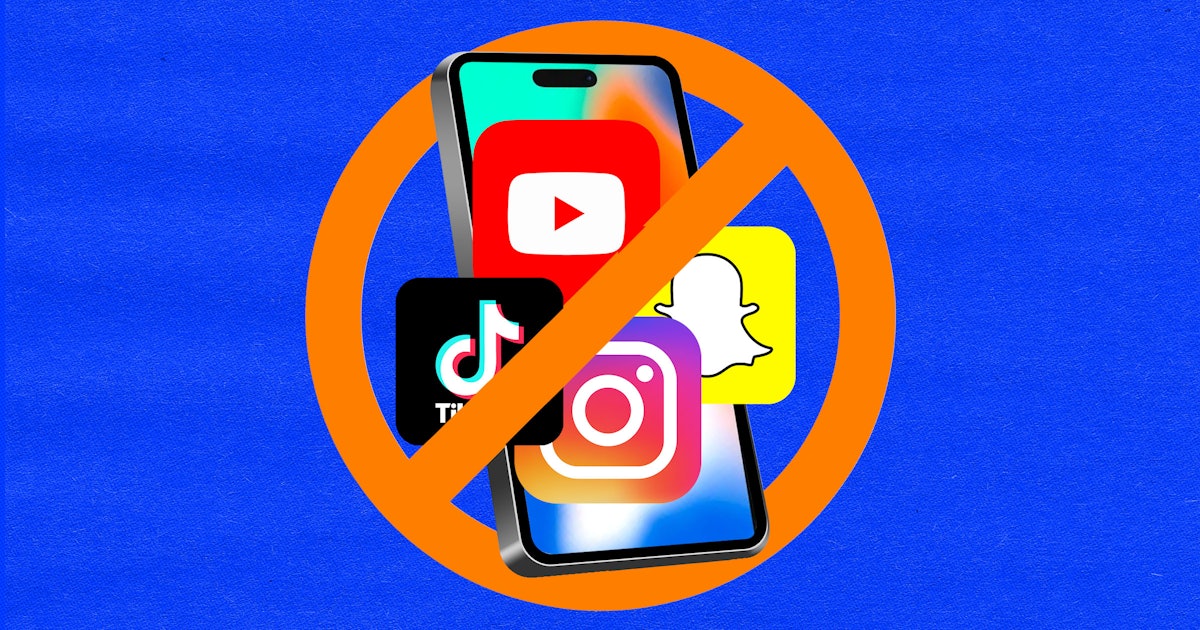It’s no secret that everyone worries about kids and cell phones, from worried parents to frustrated school administrators to the kids themselves and even the U.S. Surgeon General. That may be why more and more states across the country are enacting cell phone (and smartwatch) bans in classrooms this year.
So far, 11 states have enacted restrictions on cell phone use in classrooms and schools, and more states, including California and New York, are considering adding their own bans this year. But it doesn’t stop there – countries around the world have jumped on a similar train and tried to limit the use of mobile phones in classrooms with their own bans.
Why are so many schools interested in banning cell phones in classrooms?
You may have heard the following anecdotes and horror stories while chatting with other parents: It’s really hard for kids to stay away from their phones during class. But there are also hard numbers. A Common Sense Media study of 200 students found that a whopping 97% of kids ages 11 to 17 admitted to using their phones during school hours; a recent Pew Research study found that more than 70% of high school teachers say cell phone use in class creates serious distraction problems for students.
As a result, many states are taking action. California Governor Gavin Newsom has chosen to address the issue by calling on the state’s schools to restrict cell phone use in the classroom, while Ohio, Minnesota, Virginia and many other states across the country have increased restrictions on cell phones in the classroom policy. In fact, according to Nea Today, as of 2020, 76% of U.S. schools have established some rules for the use of mobile phones in class. Recently, New York State Governor Kathy Hochul also met with school superintendents, teachers and local politicians to decide whether to implement an outright ban on cell phone use for most of the school day.
“I pretty much know where I’m going. I believe people will join in because I know what I’m hearing, that this could be a bipartisan — and I would say nonpartisan — issue that really has a breakthrough,” Hochul said. In a recent interview in the governor’s Manhattan office, he said, new york magazine. “I want to go big on this. We’re going to do big things.
What are other countries doing?
The United States is definitely not the first country to consider the impact of cell phones in the classroom. Across the border, several provinces across the country have decided to impose cell phone bans in classrooms, and while the parameters of the ban vary from region to region, the overall plan is to limit cell phone use during school hours, according to the Canadian Broadcasting Corporation. Schools in the UK have also decided to heed teachers’ advice and restrict the use of mobile phones during lessons, a trend that has spread across Europe. Schools in Hungary, the Netherlands, Greece, Denmark and France have all begun taking steps to restrict students’ use of mobile phones during study.
In France, 200 secondary schools have adopted a test plan requiring students to stay in lockers, while Greece, Italy, Brussels and Croatia have banned mobile phones in classrooms outright. There has been some pushback in other countries, particularly in Canada, where teachers have expressed concerns they will be left to police students’ electronics without any support, but concerns are widespread about the negative impact mobile phones will have on students’ learning.
Of course, cellphone bans are a complex issue for many. As Italian education expert Stefano Lodola told Horrible Mom, “Italy’s public schools have problems with their facilities. Banning cellphones, especially for worried parents, can make them question their care and the safety of their children.” Lodola Dora noted that a mobile phone ban would require “school administrators, parents and teachers to work together to seamlessly implement such” rules, especially given that “Italian schools from kindergarten to university ultimately value social interaction and promote good communication.”
What do teachers want?
Banning cell phones in the classroom seems like an idea that would find unilateral support from teachers, especially those who struggle to hold students’ attention during class time. According to Education Week, the teachers union in Wichita, Kansas, even included a cellphone ban in contract negotiations this year because they believe the devices are affecting their working conditions.
but New York history teacher David Round said new york magazine He was initially skeptical of the idea. He believes that “the media sometimes exaggerates the dysfunction of our students. You might think that our kids are zombies with no ability to communicate and all they do is stare at their phones 24/7. That’s not reality and never has been. That’s He said he has seen a significant improvement in the way students socialize with each other since Lowndes implemented the cell phone ban. “It reminds me of what the hallways used to be like – loud conversations, kids interacting with each other.
John Fearnall, a retired Canadian high school teacher, sees the issue differently. “It’s a little strange to ban our schools from using such a valuable resource, in part because teachers have been encouraged to move to the digital space over the past few years,” Fellner explained to Scary Mom. “For example, without smartphones, I wouldn’t be able to take any photos in my photography class because we no longer have cameras because our equipment budget has all but disappeared.”
Filnall noted that he believes in concessions in these cases, but noted that teaching media literacy may be the answer. “Instead of banning cell phones, we teach all children to be media literate before they get a device. That way, they can understand how the device shapes us all. Or, if they already have a device, we ask them to examine their lifetime How much time are spent looking at screens, thereby teaching them to be more self-aware.
What do parents want?
Although administrators and teachers have expressed strong support for the idea of banning cell phones in schools, many parents are still hesitant to the idea. After years of constant contact with their children, some may find it difficult to reach out to them during school hours.
As parent educator and education coach Sari Goodman tells Horrible Moms, “Parents need support and understanding, starting with office staff, who will be fielding more calls and emails than they can handle. The first step in the disconnection process is for parents to acknowledge that they need their kids to have their phones at all times. Goodman noted that the reality and imminent danger of school shootings worries parents a lot, and a recent Whistle Out study found that during emergencies. Safety is the top reason why parents want their children to have cell phones, and the same study found that more than half of parents want their children to have cell phones during the school day.
Brian Galvin, chief academic officer for college counselors, noted in an email to Horrible Moms that requiring teachers to confiscate cellphones if students do not comply with the ban is a significant responsibility. “There is a real risk for a teacher to confiscate or attempt to take away a cell phone because he is responsible for a device that may be worth more than $1,000.” Galvin also noted that cell phones are used for research purposes such as taking photos and audio editing to enhance Note-taking function. “What used to be ‘searchable’ in the library now works just as well on your phone,” he told Scary Mom.
What’s best for everyone?
Just as parents may worry about their children’s phones and losing touch, Laura Tierney, founder and CEO of The Social Institute, a An organization dedicated to giving students and teachers the tools to navigate a technology-centric world. For example, students can chat back and forth in Google Docs. There has been a surge in schools providing one-on-one devices to students during and after the pandemic, but I think this can sometimes be overlooked due to the overwhelming focus on phones.
The idea of a total ban on cell phones in classrooms is a big change for students, parents and teachers. It remains to be seen how these changes will ultimately benefit classrooms as the school year begins.




